Links and Thoughts #5 (May 2024)
– personal
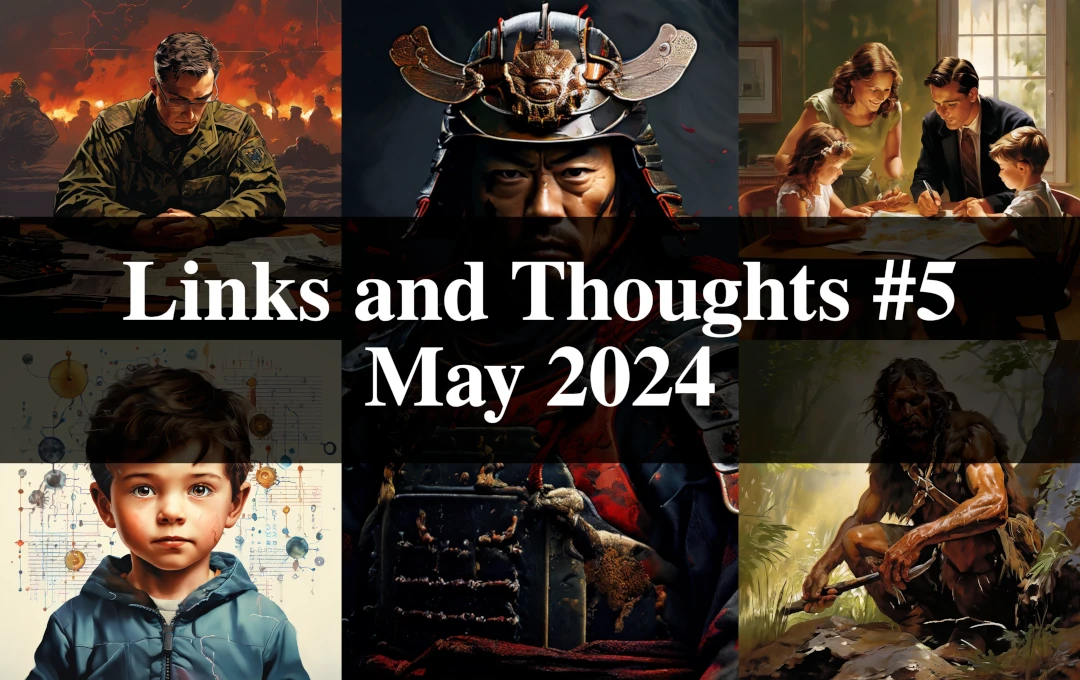
My original intention for this series was simply to provide a list of links to interesting content, including a summary of each item and my thoughts about it. Instead, from the very first post, I wrote summaries that were way too long and elaborated on my opinion in too much detail. It was too time-consuming, and some of the articles turned out way too long.
Thus, I decided to change my approach to what I originally intended, starting with this month’s post, and it was definitely a good decision. In barely a few days of light work, I prepared summaries for the five links in this post and polished the writing for each. I even added highlight images to most of them to liven up the post and perhaps compensate for the reduction in word count. 1
I wanted to include three more links in this month’s post, but I got too busy with work to read anything substantial. That’s also why, once again, I posted the article too late. Like I’ve done before, I’ll backdate this article to May 31st and try to do better next time.
Without further ado, here’s what I could gather for May’s post in my “Links and Thoughts” series.
Dealing with Uncertainty
The Tao of Boyd: How to Master the OODA Loop
- Link to article
- Authors: Brett & Kate McKay
- Date: 2023-07-01 (originally published in September 2014)
- Source: The Art of Manliness
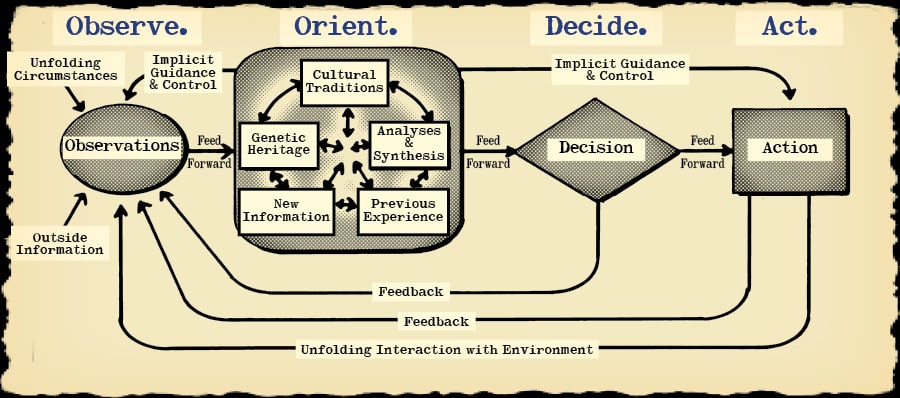
This article goes in depth into the OODA Loop, a decision-making model that the American military strategist John Boyd developed across several presentations he gave throughout the latter half of the 20th century. Nation-states, big and small businesses, and even terrorist organizations now use the OODA Loop as a framework for strategic decision-making. Despite its popularity, the OODA Loop is usually misunderstood and reduced to simply being the four steps of its acronym: Observe, Orient, Decide, and Act. Boyd actually conceptualized it as something grander, deeper, more nuanced, and more complex: “an explicit representation of the process that human beings and organizations use to learn, grow, and thrive in a rapidly changing environment—be it in war, business, or life.” The McKays provide an accessible yet detailed synthesis of the philosophical and scientific principles underpinning Boyd’s OODA Loop system, the nuances of each step of the loop, and practical insights for applying it in any domain.
Elites
Elites are genetically different
- Link to article
- Author: Cremieux Recueil
- Date: 2023-11-25
- Source: Aporia Magazine (Substack)
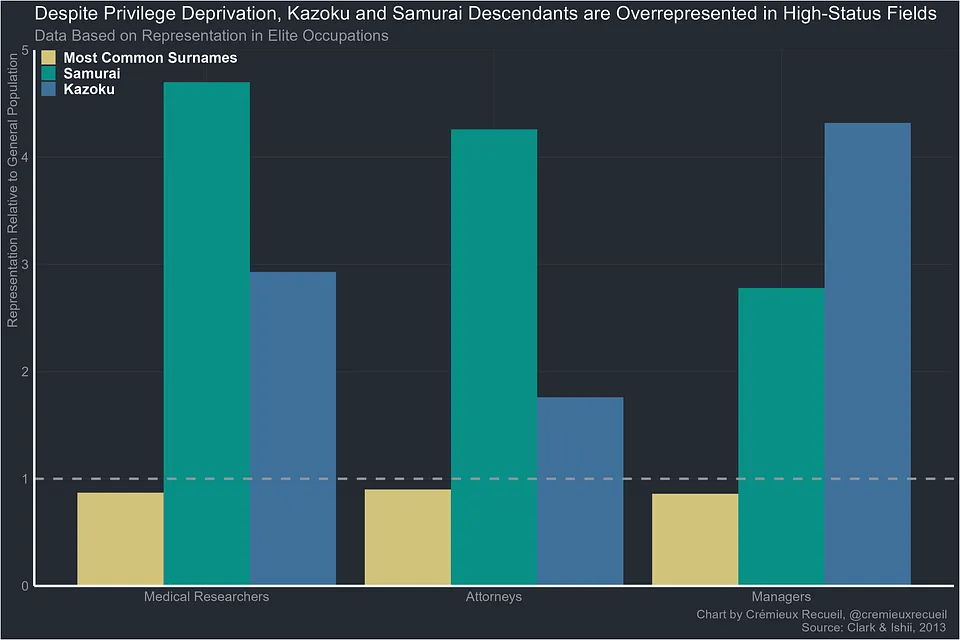
In this article, Cremieux Recueil presents several cases from different regions and time periods that illustrate how elite groups form through processes of selection (both endogenous and exogenous) and thus become genetically different from the rest of the population. The author examines studies and data about the Samurai and Kazoku, the Kulin Brahmin, Egyptian Copts, Jews, and Indo-Fijians, among other cases. The article is very interesting and well-researched; I definitely recommend it.
Nature vs. Nurture
Where parents make a difference
- Link to article
- Author: Inquisitive Bird
- Date: 2024-03-20
- Source: Patterns in Humanity (Substack)
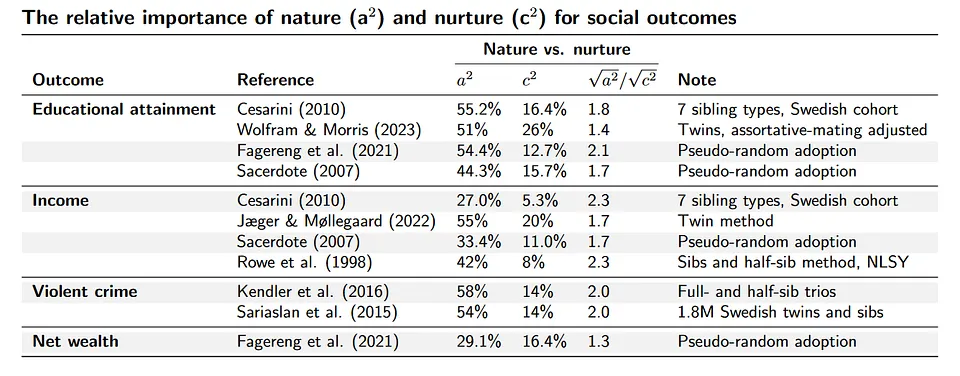
Inquisitive Bird criticizes both the common view that denies the importance of nature (genetic inheritance) and the opposite view that denies the effect of nurture. In this article, he focuses on the latter claim because others on his “side” of the debate (hereditarians) often assert it, and he thinks it’s not accurate based on the behavior genetics literature. This article summarizes several high-quality studies on the effects of nature and nurture on certain important social outcomes (educational attainment, income, crime, and net wealth) in order to show that parenting does have an important effect on these outcomes, though genetic effects are still roughly twice as impactful.
Do parents make a difference?
- Link to article
- Author: Joseph Bronski
- Date: 2024-03-25
- Source: Joseph Bronski (Substack)
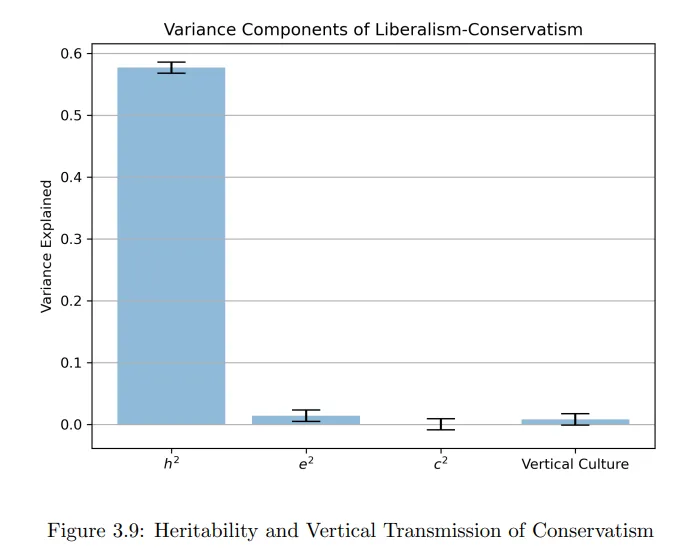
In this article, Joseph Bronski responds to the Inquisitive Bird article linked above from a hereditarian perspective as well. Bronski confirms that the article’s research is mostly good, and he agrees that, for social outcomes, genetics predominate but the shared environment has a small but measurable effect. However, Bronski provides several important critiques, the main one being that Inquisitive Bird obscures the crucial distinction between social outcomes and physical traits by focusing exclusively on the former, which are intuitively less heritable than the latter. Furthermore, he points out that even for some social traits, parents don’t influence their children at all through the shared environment, only through genes, and some traits show that the non-shared environment (outside the home) has an effect while the shared environment has none; in particular, he provides some charts from his forthcoming book, showing that this is the case for political views on the liberalism-conservatism scale, social attitudes, and moral values.
The secondary critique is that Inquisitive Bird apparently ignored some important limitations of the paper by Isungset et al. (2022). Inquisitive Bird claimed that the paper provides compelling evidence that birth order effects on educational attainment originate in the post-natal environment, but Bronski proposed mutational load as a better explanation. Bronski later edited the article to add some statistical simulations to deal with an objection. He later edited it again to admit his simulations were wrong and to propose an alternative explanation consistent with mutational load theory. I admit I don’t know enough statistics to judge that whole section.
Primitive Humans
Man the Hunter
- Link to article
- Author: Inquisitive Bird
- Date: 2023-11-19
- Source: Patterns in Humanity (Substack)
This brief article summarizes the evidence that supports the consensus view that hunting (especially big game hunting) is predominantly a male activity in traditional hunter-gatherer societies. The author wrote it as a response to the recent trend of articles and research papers of questionable quality that try to upend our common-sense knowledge of the roles of men and women throughout history. To summarize:
The notion that hunting—particularly large game hunting—is predominantly a male activity in hunter-gatherer society is overwhelmingly supported by the evidence. While the strawman that women never engage in hunting isn’t true, the sex differences are even starker than I expected prior to analyzing it. Women hunt regularly in well below 20% of modern hunter-gatherer societies, and they directly capture well below 10% of the hunted meat mass.
And why do women hunt to a much lesser extent than men? While men’s physical advantages over women certainly play a role, Inquisitive Bird explains that the biggest factor is that only women can breastfeed. In small-scale societies, the average woman would have multiple children, each of which she would have to breastfeed for up to three years, limiting her ability to go on hunting trips or generally face danger, and thus the natural division of labor results in women dedicating themselves to other childcare activities as well.
Footnotes
-
I hesitated to add images to previous articles because this is a GitHub Pages website, which means it’s basically a Git repository that GitHub serves on the web. It’s common knowledge that it’s not a good idea to store binary blobs like bitmap images on Git repositories; check the answers to this StackOverflow question and this other question to know more. That’s why I only uploaded the cover image for each post and nothing else. To solve my dilemma, this time I simply used the image URL from the source. I didn’t do this on previous posts because I wanted to minimize page loading time, but now I think that the slight negative impact is not worth the concern. ↩